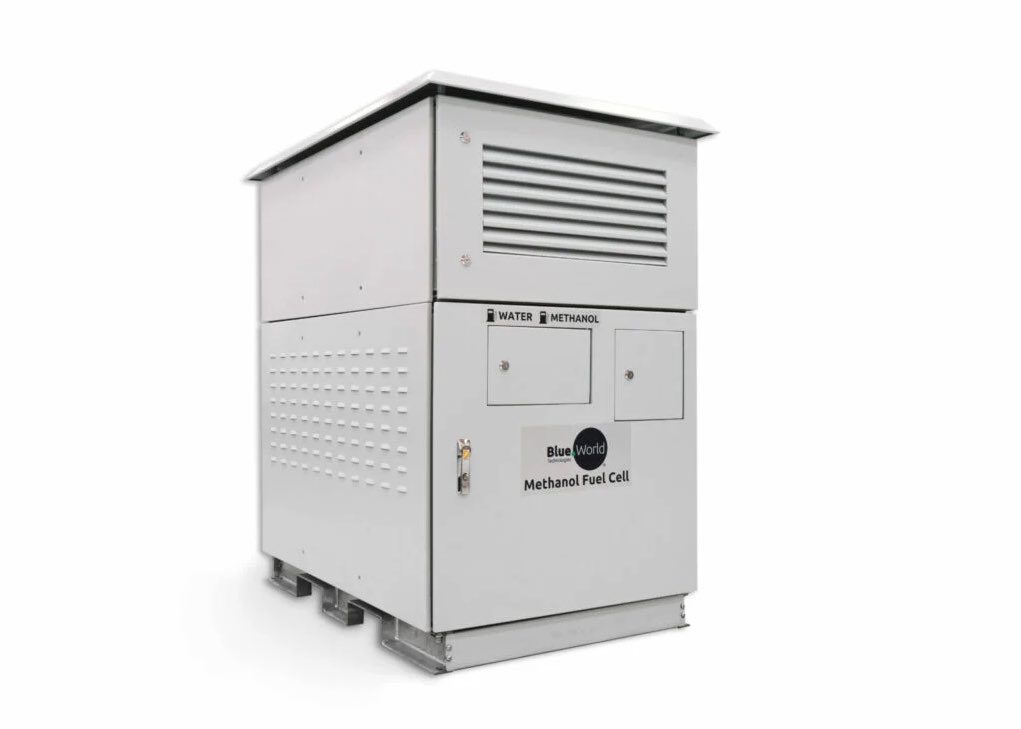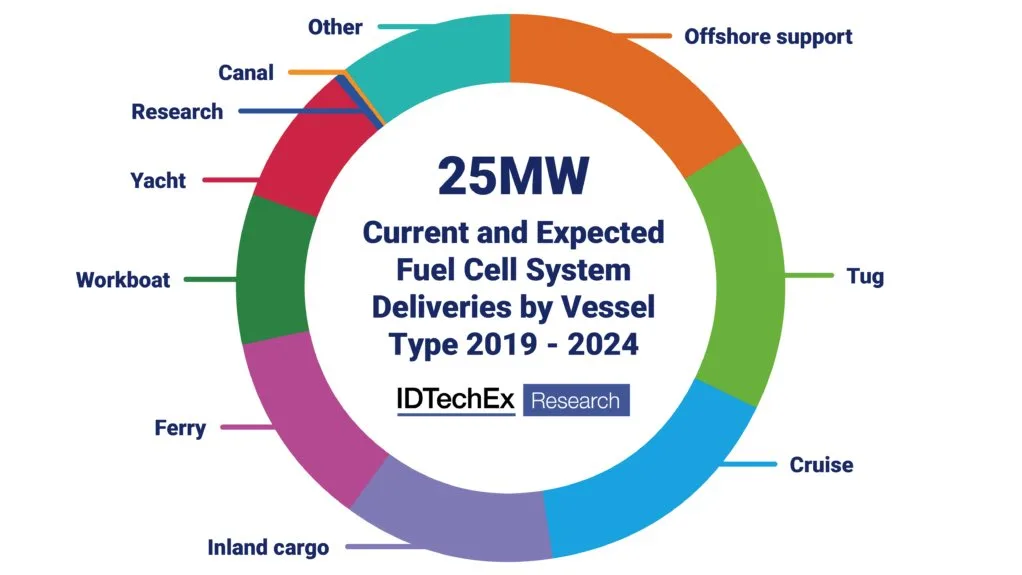21 December 2024
New methanol fuel cell-based power generator

Blue World Technologies has launched CellPack™ Stationary, a methanol fuel cell-based power generator to replace conventional fossil-based generators.
Concept
Danish fuel cell developer and manufacturer Blue World Technologies has launched CellPack™ Stationary, a methanol fuel cell-based power generator.
According to Blue World, with high efficiency, a continuous power output, a pure methanol fuel system, and IoT-based remote monitoring, the CellPack™ Stationary is an innovative system replacing conventional fossil-based generators.
The stationary is specially developed for the telecommunication industry, but can also be adapted to other demands such as electric vehicle charging or power supply for low-quality or off-grid installations.
Configuration
It consists of a base unit combined with either one, two, or three 5 kW power modules depending on the customer’s power need, and the system can be installed as a hybrid solution combined with renewable energy sources such as solar cells or wind turbines.
It can be delivered as a 5, 10, or 15-kW system for installation either as a backup, supplemental, or primary power source depending on customer need, and is based on high-temperature PEM fuel cell technology with a system efficiency of 38-40%.
When powered by renewable methanol, it has a carbon-neutral operation.

Views from the company
“We are, with the many advantages of the CellPack Stationary system compared to fossil-based gensets but also other fuel cell solutions in the market, presenting a strong green alternative for power generation.”
“In general, the fuel cell technology has great potential in various markets, especially within heavy-duty transportation and the maritime sector, but that are still years from commercial roll-out. On the market for smaller gensets, we can make a significant difference now bringing down CO2 emissions and air pollution. So, this is where we start, one generator at a time.”
Mads Friis Jensen, Chief Commercial Officer and Co-founder at Blue World Technologies
“We are experiencing strong traction from potential customer searching for alternatives for diesel generators. But it is not enough to reduce CO2 emissions and air pollution, it must also be good business for them.”
“So that is what we are providing with the CellPack Stationary system, a methanol fuel cell-based power generator, that gives our customers a lower OPEX and TCO compared to diesel generators. We expect that the unique features and strong business case of our system will enable us to accelerate to mass adoption of this product within the coming years.”
Prabhakar Tunuguntla, Product Director of CellPack™ Stationary at Blue World Technologies
Production
At the fuel cell factory in Aalborg, Denmark, Blue World Technologies currently has an annual cell production capacity of 15 MW. This corresponds to 3,000 CellPack™ Stationary systems.
The company said that, within the next couple of years, the annual production capacity of the factory is expected to more than triple as they anticipate a growing demand for diesel genset replacements while the company will also start large-scale deployment of fuel cells to other markets.
Source: BWT
See Also
Recently, IDTechEx released a report outlining the adoption of green fuel cells in marine markets, running on alternatives such as green hydrogen and ammonia, as some of the most promising solutions.
The maritime sector, which accounts for approximately 2.9% of global carbon emissions, is seeking to meet broader climate goals such as the Paris Agreement and ‘Fit for 55’ in Europe. Thus, IDTechEx said it sees green fuels, such as green hydrogen and ammonia, as some of the most promising solutions.

Rapid adoption of green fuel cells in marine markets
IDTechEx released a report outlining the adoption of green fuel cells in marine markets, running on alternatives such as green hydrogen and ammonia, as some of the most promising solutions.


